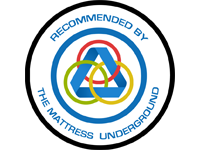5 Indicators That You Might Benefit From a Sleep Study
on Jun 05, 2018
People who struggle with insomnia, sleep apnea, and other sleep troubles often try to cope with their issues by using over-the-counter medications, natural remedies, and an array of other tricks and methods. But if you are really struggling to get enough sleep in a regular basis, you may need to consider getting a sleep study so that a doctor can help you figure out how to get better sleep. In this blog we will share 5 indicators that you may want to consider a sleep study.
1) You May Have Sleep Apnea
If your dentist, primary care doctor, or sleep medicine physician thinks you might have obstructive sleep apnea they may recommend you have a sleep study to diagnose the disorder. OSA (obstructive sleep apnea) occurs when the upper airway gets blocked, preventing proper and effective breathing. There are other types of sleep apnea as well and symptoms include loud snoring, interruptions in breathing (usually observed by a partner who is awake while you're at rest), you wake up abruptly and short of breath, and frequently awakening with a sore throat or headache.
2) You Have Hypersomnia Like Narcolepsy
While the term narcolepsy might conjure the image of someone falling dead asleep out the blue, hypersomnia doesn't have to be as dramatic as that. Hypersomnia is characterized by excessive sleepiness during the day, the need to sleep many hours during the day, and the inability to feel well rested according to howsleepworks.com.
3) You Have Parasomnia
Sleepeducation.org also suggests getting a sleep study if you experience sleep walking or sleep eating. Not only are these behaviors dangerous but they also might mean you aren't getting a good night's sleep. Sleepwalking and sleep eating indicate abnormal activity in the nervous system while sleeping.
4) You've Changed Habits and It's Not Helping
Many people who struggle with sleep try some common remedies before heading to a doctor. This can include over-the-counter and prescription medications, establishing healthy sleep hygiene, and reducing or eliminating stimulus intake like caffeine, tea, chocolate, and sugar. It can also include chiropractic care, acupuncture, massage therapy, essential oils, and supplements. If you've made the changes and nothing is helping, you might look into getting a sleep study
5) Even a New Bed and Pillows Aren't Helping
For some people who aren't getting a good night's sleep, it all comes down to discomfort and pain from their beds. Some people are even allergic to the materials in their mattresses and they don't even know it. Trying a new organic mattress from My Green Mattress could help. But if even a new mattress and pillows free of allergens aren't helping, you might benefit from a sleep study.
What's Next?
If you know you experience one of the conditions mentioned before or you have tried all the common fixes and you still aren't getting the sleep you need, you might want to consider contacting a sleep medicine physician. They will determine if you qualify for a sleep study. There are several ways of doing a sleep study. There are at-home studies as well as in-lab studies. The results of these studies allow your doctor to see how long each of your sleep stages are as well as EEG activity, eye movement, and muscle tone. Breathing and blood oxygen levels are looked at for those who may have sleep apnea.
After the sleep study, your doctor will determine the best course of action for you. The cause of your sleep problems will determine the course of treatment. To read about some of the treatments available, see the previously mentioned article from sleepeducation.org.
At My Green Mattress, we're passionate about people getting a great night's sleep on a mattress they can trust. If you think you may benefit from a sleep test, consult with your primary care physician. And to check out green mattresses that are free of toxins and potentially harmful chemicals, check out our mattresses here!
← Older Post Newer Post →







Comments